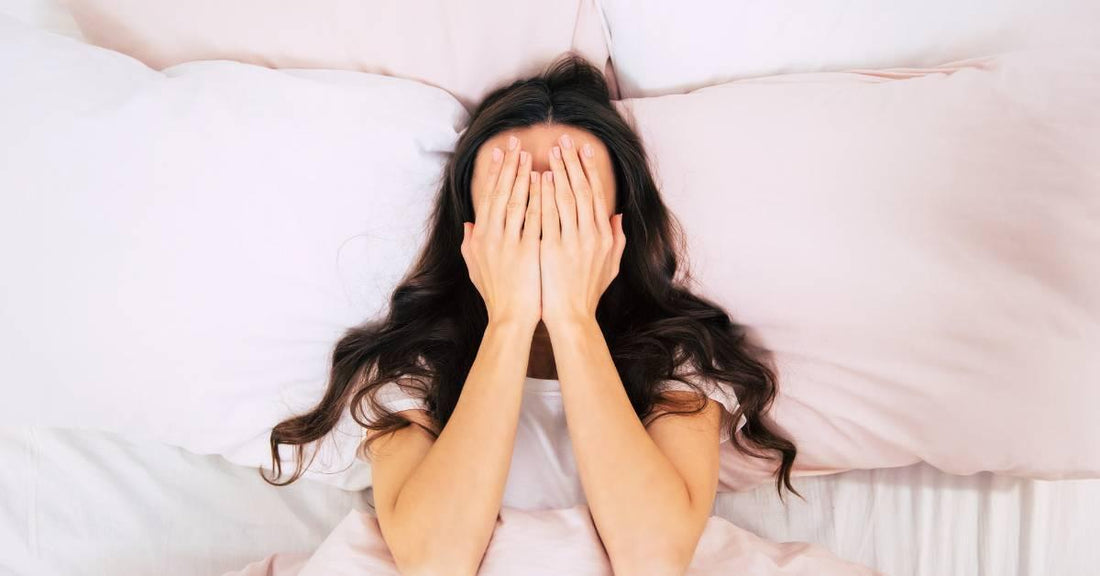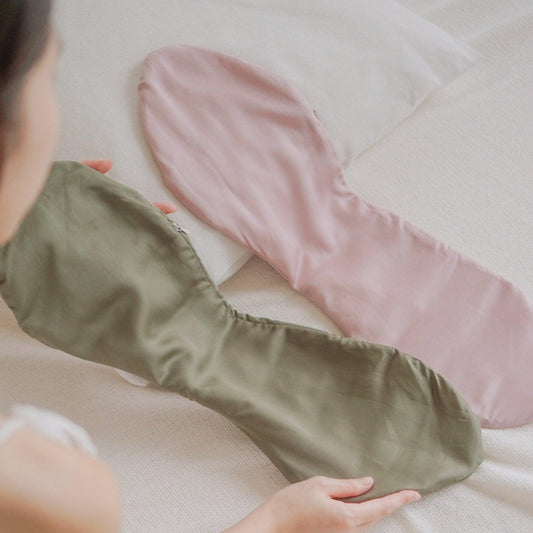
How To Get Over Your Fear Of Sleep
Share
If you're struggling to get a good night's sleep, you're not alone. In fact, according to the National Sleep Foundation, almost half of Americans report difficulty sleeping at least a few nights a week. And if you're one of those people, you know that sleep is essential for your health and well-being. However, sleep anxiety can be a major obstacle to getting a good night's sleep. In this blog post, we're going to explain how sleep anxiety works and how you can overcome it. We'll also provide you with tips on how to challenge your negative thoughts and practice relaxation techniques to help you sleep better. By following these tips, you'll be able to get over your fear of sleep and get a good night's sleep.

1. Understand Your Anxiety
Sleep is one of the most important things that you can do for your health. Not only does sleep help to restore energy, it's also essential for overall mental and emotional well-being. However, many people have difficulty sleeping due to anxiety or other stressors in their lives. If you're struggling to get a goodnight's sleep, read on for tips on how to get over your fear of sleep.
First and foremost, it's important to understand what's causing your anxiety and stress in the first place. Sometimes, it can be difficult to identify the root of our problems, but by taking some time to analyze our situation we can often figure out what's causing our anxiety. Once we know what's causing our anxiety, we can start to address it head on by identifying our sleep triggers. These are things or situations that set off our anxious response and need to be avoided when trying to fall asleep.
Once we've identified our sleep triggers, it's time for us create a relaxing bedtime routine that will help us wind down before bedtime. This routine should include winding down for at least 30 minutes before bedtime with light reading or meditation, avoiding caffeine and alcohol close to bedtime, and putting away all electronic devices near the bed including smartphones and laptops. Following this routine will help us fall asleep faster and stay asleep through the night without any struggles.
2. Challenge Your Negative Thoughts
It can be tough to get over your fear of sleep. After all, it's one of the most essential parts of our lives – we need to sleep in order to function properly the next day. However, too often, we let our negative thoughts about sleep control our behavior. These thoughts can lead to anxiety and depression, which is why it's so important to challenge them.
Below, we'll outline the four steps that you need to take in order to challenge your negative thoughts about sleep. First, you need to be aware of the thoughts that are driving your anxiety or depression. Next, you need to question those thoughts and ask yourself whether they're actually true. If they are true, then you should start reframing them in a more positive light. Finally, you need to commit yourself to doing something about those positive reframes – whether that means setting a goal for sleeping better or actually taking action towards achieving it.
By following these four steps, you can help shift your mindset towards sleeping well and overcome your fear of sleep. It may take time and effort (and a little bit of perseverance), but eventually, the process will pay off dividends in terms of feeling better mentally and physically overall.
3. Practice Relaxation Techniques
Are you afraid of sleep? If so, you're not alone. Sleep is a vital part of our lives, and for some people it can be a source of anxiety. However, there are ways to get over your fear of sleep. Below, we'll outline some relaxation techniques that can help you to fall asleep faster and stay asleep longer.
It's normal to be afraid of sleep at first – after all, nobody is born knowing how to sleep well. However, with practice and patience, you can learn to relax and fall asleep quickly and easily. In fact, there are many different techniques that work well for different people. Try out a few different techniques until you find the one that works best for you.
One effective method is deep breathing exercises. Sit down in a comfortable position with your eyes closed and take several deep breaths in through your nose and out through your mouth slowly and evenly. Repeat this exercise several times until you feel relaxed and sleepy.
Another helpful technique is progressive muscle relaxation (PMR). This technique involves tensing up one muscle group at a time until the muscle feels completely relaxed. Start by focusing on your feet or hands – whichever muscles tend to cause the most anxiety – then work your way up systematically until all of your muscles are relaxed. You can also use PMR before bed as part of an overall relaxation routine or prior to an anxious task as a way to calm down before beginning it.
Visualization also has proven helpful when it comes to falling asleep quickly and staying asleep throughout the night. Picture yourself drifting off into peaceful slumber surrounded by calming images or sounds that appeal to you personally. Remember that there is no right or wrong way to sleep – everyone experiences sleep differently based on their individual preferences and needs! Experiment with different visualization techniques until you find something that works for you; eventually, sleeping will become easier than ever before!
To Wrap Up
If you're struggling with anxiety, know that you're not alone. Millions of people deal with anxiety on a daily basis. The most important thing is to understand your anxiety and to work on challenging your negative thoughts. Practicing relaxation techniques can also be helpful in managing your anxiety. If you need help, don't hesitate to reach out to a mental health professional.





